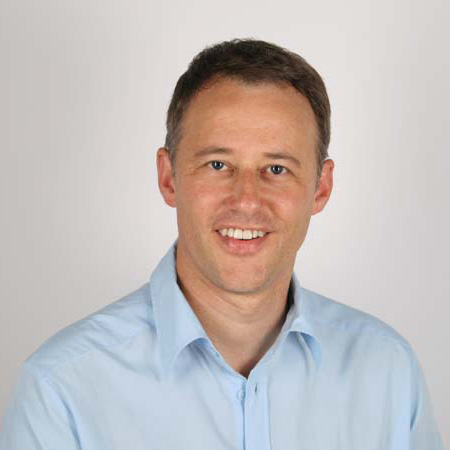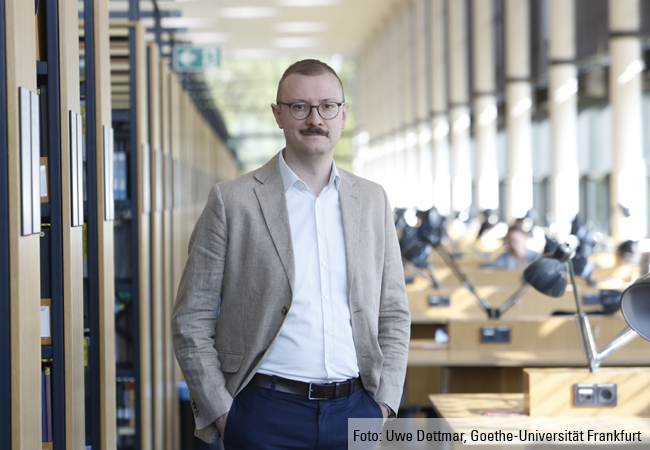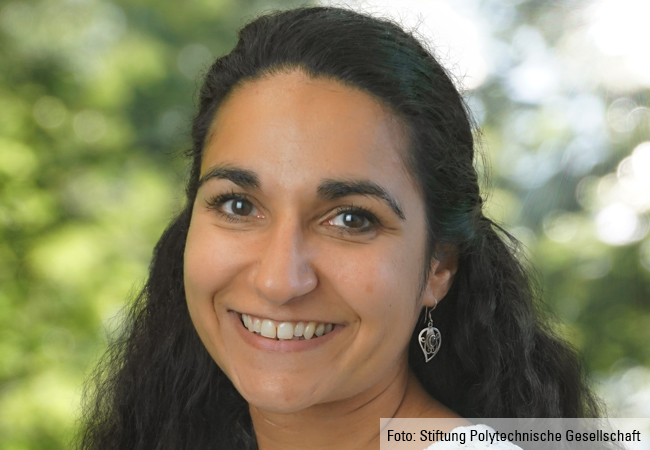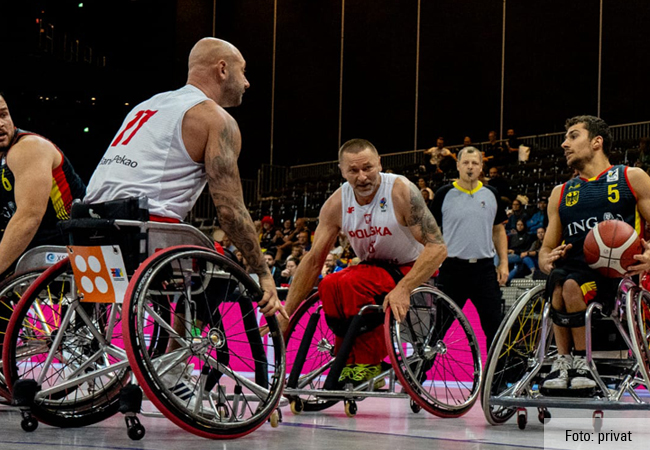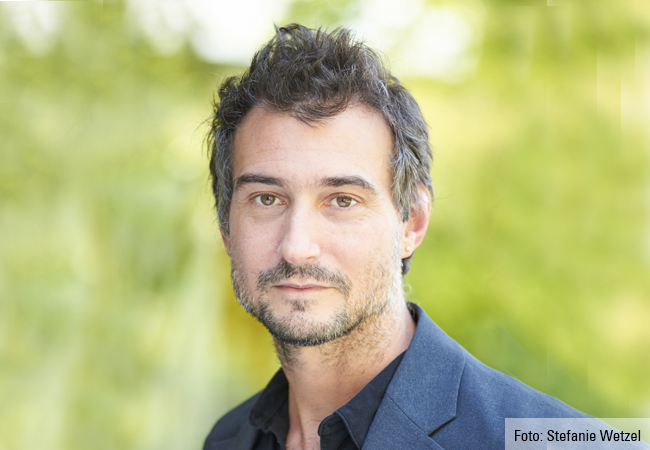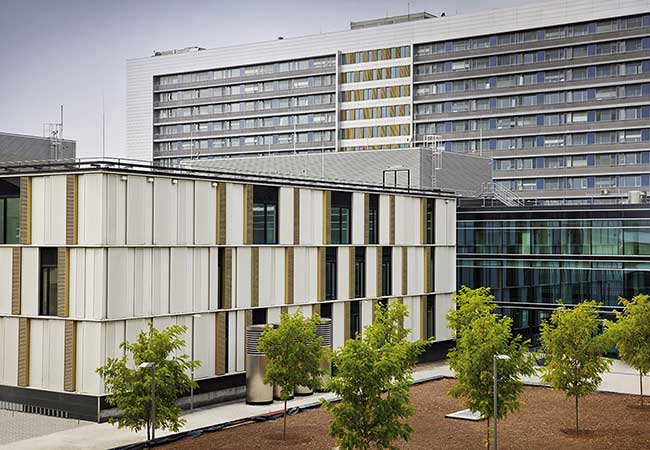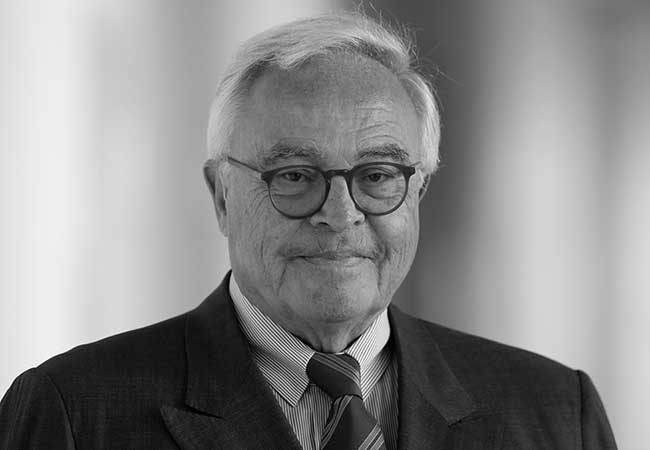Educational scientist Prof. Wolfgang Meseth speaks about his research and teaching on the topic, funded in part by the “Georg und Franziska Speyer’sche Hochschulstiftung” foundation.
Concern has been expressed by some in recent years that the topic of “Education after Auschwitz” is no longer being adequately researched at Goethe University. That’s an unfounded concern, is it not?
Wolfgang Meseth: Correct. With the content orientation of my professorship, the Faculty of Educational Sciences has institutionalized the topic of “Education after Auschwitz”. Since taking up my post, I have been in charge of managing the research unit on Nazi pedagogy, set up by Benjamin Ortmeyer and Micha Brumlik, and of establishing the topic of “Education after Auschwitz” at the faculty in the long term. In my first year here in Frankfurt, I have held many conversations, made contacts, and gained an overview of the existing work in research and teaching. The environment at Goethe University is simply great – and not just in terms of research on the topics of remembrance culture, Education after Auschwitz or Nazi pedagogy, but also in terms of urban society. There are good cooperative contacts in place with the Historical Museum Frankfurt and the Adlerwerke Historical Site in the fields of research and teaching. Within the framework of the Memorandum of Understanding concluded this spring between Goethe University and the Central Council of Jews in Germany, we are currently working with the Jewish Academy in Frankfurt to establish a teaching and research forum on “Education after Auschwitz”. Most important, however, is the fact that my work on this project is financially supported by the Georg und Franziska Speyer’sche Hochschulstiftung. In addition, the Faculty of Educational Sciences has also provided funds for a research assistant position.
What will the collaboration with the Jewish Academy look like?
We are currently working together on reorganizing the material collection of the former Research Center for Nazi pedagogy, with a view to digitizing selected inventory and making it accessible in a legally secure manner for work with students, multipliers in historical-political education, as well as school classes. The collection meanwhile has been moved from its old location in the Juridicum on the Bockenheim Campus to representative rooms in the IKB building on the Westend Campus. Together with the Jewish Academy, we would like to expand research on the topics of “Education after Auschwitz”/Holocaust education and strengthen historical-political education in educational science majors, in teacher training programs, as well as in Frankfurt’s urban society.
So the topic of “Education after Auschwitz” should also be more firmly anchored in teacher training?
Having been in Frankfurt for one and a half years now, I have to conclude that there is no systematic place in teacher training for education critical of racism or the prevention of anti-Semitism. The same applies to the history of National Socialism, forms of Nazi pedagogy and propaganda, as well as the history of their reappraisal after 1945. There is a considerable need for more professionalization in this field. I would like to emphasize that the professionalization of teachers in this field cannot be limited to a subject-specific domain (e.g. political science or history didactics) – as we can see, on the one hand, by the anti-Semitic and racist acts of violence in recent years. On the other hand, ongoing debates about Germany’s culture of remembrance – like the recent anti-Semitism scandals surrounding the documenta – show that prospective teachers need to be empowered to address such controversies in a competent manner. We are currently applying for an initial project to close the biggest gaps in this area. However, in my view the state of Hesse also has a duty to ensure that the topic is structurally anchored in Frankfurt’s teacher training program in the long term.
Speaking of documenta: In how far is the debate surrounding the exhibition relevant for your research?
The controversy surrounding documenta 15 shows that the act of simultaneously articulating experiences of suffering and injustice from colonial oppression as well as racist exploitation on the one hand, and anti-Semitic exclusion and the annihilation of Jewish life on the other, entails conflicts that challenge Germany’s historical-political coordinates. Such conflicts can also be expected in schools, especially considering conditions like migration and flight, generational change, postcolonial constellations and the medialization of remembrance-cultural topics. One of the great challenges of politics and pedagogy when approaching this experience of regret is to open up spaces of recognition and trust, in which the often irreconcilable moral conflicts are ethically reflected and brought into an exchange based on mutual recognition. It is the job of historical-political education to determine how this can succeed in pedagogical contexts. By contrast, clarifying how such conflicts arise in pedagogical practice and how they are dealt with is an empirical question that educational research has to address. The Teaching and Research Forum aims to provide the intellectual framework for both tasks and questions.
What is the focus of the event planned for December?
The conference we are planning in December will address precisely this problem cluster. The title is: “Anti-Semitism Prevention and Anti-racist Education in Transnationalized Memory Spaces. Current Perspectives of an ‘Education after Auschwitz’ in Interdisciplinary Discussion”. The focus lies on the following questions: How do addressees, including teachers and educators, relate to memory-political conflict situations in the public space, what are the resulting interaction dynamics, what answers do concepts for anti-Semitism prevention and anti-racist educational work offer for the current challenges of an “Education after Auschwitz”? Together with colleagues from educational science and political education, history didactics and political science, we will discuss the results of empirical and theoretical research on the topic of “Education after Auschwitz” and a culture of remembrance as part of an interdisciplinary exchange. In so doing, we will also explore the relevant consequences for historical-political education.
Questions: Dirk Frank
Friday, December 2, 2022
Workshop Conference
“Antisemitismusprävention und rassismuskritische Bildungsarbeit in transnationalisierten Erinnerungsräumen.
Aktuelle Perspektiven einer »Erziehung nach Auschwitz« im interdisziplinären Gespräch“
(Anti-Semitism Prevention and Anti-racist Education in Transnationalized Memory Spaces. Current Perspectives of an ‘Education after Auschwitz’ in Interdisciplinary Discussion)
09:30 to 16:30
Campus Westend, Casino, Room 1.801
Organizer: Faculty of Educational Sciences, Teaching and Research Forum “Education after Auschwitz”. Sponsored by the Georg und Franziska Speyer’schen University Foundation.


